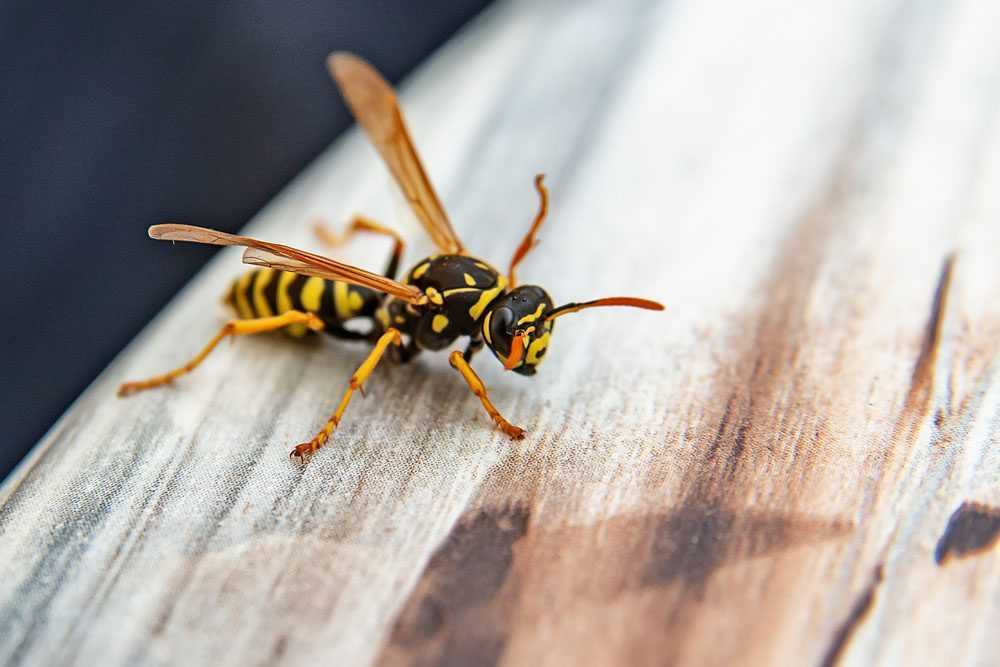Spring is here, and summer is right around the corner! Are you prepared for stinging insects? Take a look at our guide to bees and wasps!
Bees and Wasps Look Very Different
Here’s an easy and quick way to tell the difference between bees and wasps: How does their waist look? If it’s thick and the same width as the rest of their body, you’re probably looking at a bee. If it’s thin and drawn in the middle, you’re probably facing a wasp.
Here’s the deciding factor: is the insect hairy? If there are a lot of fine hairs on the body, almost making it look fuzzy, it’s a bee! Wasps typically have much less hair, if any at all.
Are wasps more aggressive than bees?
The short answer is: yes, wasps can be more aggressive than bees. The entire picture is a little more nuanced than that, however.
Bees will attack if they feel threatened. If you pinch or squeeze them, they will sting. If you threaten their nest or territory, they will sting! But if you ignore them, they’ll generally ignore you too. The exception to this is the Africanized honey bee, but only because they have a much larger definition of territory.
Wasps, however, are much more inclined to defend and attack. Wasps are also predators in a way that most bees are not. Meat can be an attractant to wasps, which causes them to linger around garbage cans and human eating areas. This close proximity heightens the chance that a wasp will be aggressive toward you, simply because they’re in the area.
Do both wasps and bees make honey?
The substance Westerners think of as “honey” is only made by one type of bee: the honey bee. Some other bees (and even wasps!) will make a small amount of honey (or nectar) for their queen or larvae, but not anything close to the large-scale operation that honey bees thrive on.
There are other insects that make a honey substance, but only when you consider the definition of honey: a substance made from pollen and nectar that is used to feed another of their species. These insects include stingless bees, honeypot ants, Mexican honey wasps, and aphids.
What if I find a bee or wasp nest?
We don’t ever recommend handling a nest of stinging insects on your own. Bee sting allergies are very serious, and any action that puts you in danger of a sting should be carefully considered. People can also develop allergies as they get older. Just because you’ve never had a reaction doesn’t mean you won’t have one!
We always recommend calling a professional. You can call us for bee or wasp nest removal!
Can bees and wasps sting multiple times?
Yes! Honey bees are the only species that will sting once. A honey bee stinger has a barb at the end that hooks into whatever is stung. The stinger is connected to the digestive system, and will be ripped out upon stinging, causing significant damage to the honey bee and eventual death.
What if I’m stung?
The first and most crucial thing is to remove yourself from the area. If you’ve stumbled on a nest or a wasp territory, you must exit the area and eliminate the chances of being stung again. Some species release a pheromone when they sting that signals other nearby nestmates to attack.
The second step is to remove the stinger. Don’t pluck or rub it; take a credit card or another stiff and flat object, and scrape the stinger out of your skin. This will limit the amount of wasp venom that enters the wound, and can also rid your skin of any “danger” pheromone that was released.
The third step is to remain calm. We know it’s difficult to stay calm when you’ve just been stung, but your fear may only increase the agitation of the insect that has just stung you.
If you’re worried about a wasp or bee nest near or around your property, give PURCOR a call. We’d be happy to remove the nest safely and quickly! Contact us to request your free pest control quote today.
"*" indicates required fields
"*" indicates required fields




